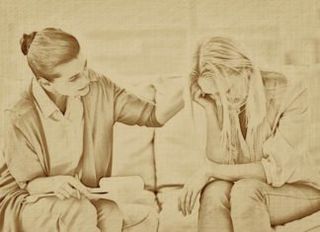
Psychiatry
The Salvation of Psychiatry
"A foolish faith in authority is the worst enemy of truth." Albert Einstein.
Posted September 17, 2017

Psychiatry should be grounded in that quest for truth. It has, however, lost its way. The various theories during its psychoanalytic period were genuinely well intended seeking knowledge, truth and beauty. However, many of its theories were off base and flat out wrong. The test of time always reveals the flaws and inadequacies of a system. The proof is in the pudding. Many of its practitioners were also flawed, some more than others. There have also been many excellent psychotherapists who worked with their patients to plumb the depths of the pain of their human experience, and helped them find their way to a truer authenticity and ability to love, while diminishing the suffering brought on by psychiatric symptoms.
Nonetheless, in my opinion, the practice of intensive psychotherapy remains and continues to be the hope for the recovery of psychiatry, psychology, social work, and other therapists. I’m referring to psychiatry generically as the field that deals with human struggle. To say it more simply, hope lies in psychotherapy. I’m not talking about professional degrees. Over the course of time I have seen many fads in psychiatry come and go, each advertised as having great promise. But they always fall short. I see fads today, that may or may not prove efficacious. I find myself cautious. Time will tell.
As a psychiatrist I have practiced the psychotherapy of character for forty-three years. As a practitioner I have come to appreciate both the art and the science of therapy. To plumb the depths of each patient’s character; to find our way with how trauma has been digested by each person’s unique temperament; to mourn that pain, not alone; to see psychiatric symptoms melt away; to bear witness to the fulfillment of each person; to be with each person’s unique journey is incredibly gratifying and effective. Of course, we are not talking perfection. There is no such thing. The pain of the past always leaves scars. But there are almost always good enough transformations.
I don’t in general write about patients because confidentiality is of such prime importance. If I could, the presentation of this enterprise would be much easier. The purpose of psychotherapy is exclusively for the well-being of the patient, not for publication, not for science, not for ego. Psychotherapy is a purely human practice, based on the development or real trust and genuine responsiveness. It is not an analytic process, but a feeling one, based on mutual respect and clear boundaries.
The value of real psychotherapy is not easily provable. It doesn’t lend itself to so-called evidence based studies. Despite the fact that this sounds like the backbone of science. It’s not. Real science is wonderful. One considers a set of information and develops a hypothesis, a theory based on inductive leaps which must conform to deductive principles and the laws of nature. To test a hypothesis, one tries in every way possible to disprove one’s own theory. The process of science is not to prove a theory, but rather, to fail to be able to disprove it. An investment in proof, whether egotistical, or financial, warps the quest for truth either consciously or insidiously.
Evidence based psychiatry is code for the new wave of psychiatry - so-called biological psychiatry, drug psychiatry. I have written extensively elsewhere about the problems with pharmaceutical psychiatry. We need to return to a psychiatry that respects the complexity of human nature; that respects our knowledge of the evolution of human personality; a psychiatry that honors the processes that facilitate mourning the pains of our existence which promotes real healing. Life is not simple. There is no easy magic. The idea that drugs can cure what ails us, is an insult to the human condition. Human struggle has always been part of human nature. In every society there have been institutions to deal with suffering and pain. There is always a role in society for people to help others with life’s struggles. We need to go beyond ‘do no harm’, but to promote real and genuine healing.
There has been a great deal of accumulated wisdom in the history of our cultures from religion, doctors, and shamans, that have plumbed the depths of human nature. Many of these systems can also be problematic due to false and limited knowledge. And they can be misused for power and control. Nonetheless, a genuine quest for the real thing, which respects the depth of the human experience is an essential enterprise. The gains in our scientific knowledge have been multiplying at an incredible rate in physics, biology, neuroscience and technology. This has not necessarily been accompanied by the accumulation of wisdom.
I am suggesting that “The Psychotherapy of Character, the Play of Consciousness in the Theater of the Brain” is precisely this unified field theory of consciousness and psychotherapy. The e=mc2 is that human character is created as trauma is digested by our temperament, which crystallizes into our unique play of consciousness. We then live out these scenarios. Every snowflake is different, but we are all snowflakes in the great snowfall of life.
Psychotherapy specifically addresses and modifies the play of consciousness. It is both an art and a science. As a science we trace the development of the play in such a way that is consistent with the brain and biology. Of course we are biological creatures, and the play is how the brain operates biologically. The significant issues are not microbiological, but operate on high symbolic levels of brain networks in relation to the limbic system. The belief that brain problems are located in our synapses and molecules is looking in the wrong place. Real psychiatric issues reflect our life adaptations as we form our play of consciousness in the brain. Healing from the damage of being alive comes from mourning our pain and writing a new play of consciousness that is infused with love rather than sadism. Psychotherapy operates on this level, and as a result, the brain changes all on its own to reflect the organization of the new play.
As an art, psychotherapy operates through feeling connections with our patients. This is purely a human experience of real engagement with another person, the therapist, as we sit together with the pain. This process takes time and operates ultimately through genuine caring and humility.
I do my best to give a full exploration of the science and the art of psychotherapy in my book. I suggest that this theory does scientifically elucidate our human development and addresses how psychotherapy allows the patient to stop inhabiting his old play, as he writes his own new and more encompassing one. I believe this addresses the full scope of psychiatric symptoms and suffering. Psychotherapy can be understood in such a way that it is dogma free; that it is consonant with knowledge from biology, and neurology. In this view psychoanalysis is a problematic and dogmatic form of psychotherapy which has become outmoded. It ought to be replaced with a newer and clearer understanding. After all, we all seek Occam’s Razor.
I would hope that people in the helping professions will undertake the hard work of learning psychotherapy. One can object that intensive psychotherapy is an expensive proposition. If it really is what’s best and what works, which I believe, we can have practitioners from all the various professions that will be able to practice it at affordable levels. I myself spent many years working in a housing project working with people with no money. I had a team of therapists there who worked very effectively. It can be for everybody.



